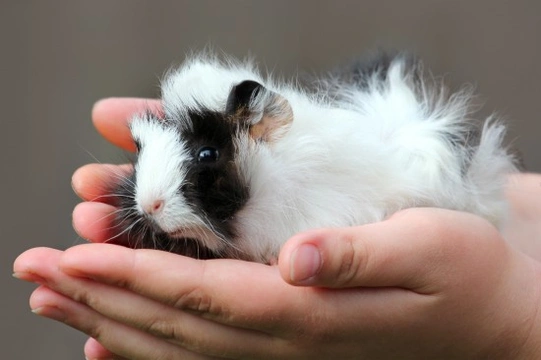
How to Treat Ringworm in Guinea Pigs
Guinea pigs are adorable little creatures which is why they make such brilliant kid's pets. They are not demanding yet they love it when they are given lots of attention. It's really important to handle guinea pigs with care being extra careful not to drop them if they start to wriggle which they tend to do. But with this said, it's also very important to handle a guinea pig regularly so they get used to being touched and stroked because it allows you to check them over for any lumps, bumps or skin complaints and it helps form a bond with them.
One condition they often suffer from is ringworm which is a type of fungus called Trichophyton mentagropytes. If your pet is suffering from the condition, you'll notice bald patches appearing on their bodies. Ringworm starts around your pet's head and in particular around their eyes, ears and noses and if left untreated it will then start to spread down their backs and to other areas of their bodies.
How Do Guinea Pigs Catch Ringworm?
Guinea pigs can catch ringworm from other infected guinea pigs or they may even pick up the fungus from their environment if an object or their bedding is contaminated. The infection can clear up on its own as long as your guinea pig is healthy and their environments kept nice and clean. However, you should never forget that ringworm is a very contagious condition that can be transmitted to other pets and to humans so e extra care needs to be taken when handling a guinea pig that's suffering from an infection.
Symptoms to Watch Out For
The first sign of a ringworm infection in guinea pigs, is the appearance of bald patches which typically develop around their heads. Cavies tend to scratch themselves because of the irritation and itchiness associated with condition which makes matters worse. These bald patches will develop a crusty, flaky type appearance with red patches which look quite sore, especially around their eyes, ears and noses.
What Causes Ringworm in Guinea Pigs
Because ringworm is a fungal infection it is highly contagious which means if one pet has it, then other animals in the household may well catch it too if they come into direct contact with an infected pet. Guinea pigs and other animals, can pick up the infection from contaminated bedding or other objects they have in their environment which is why you need to make sure everything is regularly disinfected with a pet-friendly product. If your pet has got ringworm, you should get rid of any bedding and all objects and you should do this by burning them.
Diagnosing Ringworm in Guinea Pigs
A vet would be able to diagnose the problem just by carrying out an examination of your pet and the bald patches that may have appeared around their heads or other parts of their bodies. A vet may also use an ultraviolet light which shows up the skin infection very effectively. They may also need to take a sample of your pet's skin by doing a scraping which they would then send off to a laboratory for analysis.
Treating Ringworm
The typical treatment for ring worm is for guinea pigs to be given a course of oral anti-fungal medication which can last anything from 5 to 6 weeks. However, if there are just a few patches, these can also be treated with an anti-fungal ointment which a vet would prescribe. The ointment would need to be applied to the bald patches over the course of 7 to 10 days. You may also find the vet does recommend you supplement their feed with some vitamins and minerals which would improve their health and well-being through their diet.
Managing the Condition
If you have more than one guinea pig in the same environment, you would need to separate them to avoid the ringworm from spreading to each of them. You should only put them back together once the infected pet has fully recovered from the infection. However, you would also need to disinfect their environment using a guinea pig friendly product making sure you get rid of any bedding or any object that might be harbouring the fungus otherwise your pets would be reinfected as soon as they are placed back in the environment.
You would need to complete any treatment your vet prescribes for your guinea pig even if it looks as though the infection may have cleared up before the course has finished. When treating the infected pet, you should wear disposable gloves and wash your hands thoroughly because ringworm is very contagious.
Preventing Ringworm in Guinea Pigs
When it comes to preventing your guinea pig from catching ringworm, the best way is to ensure their environment is kept as clean as possible as this will help reduce the chances of any build-up of contaminated material. However, if during the summer your cavy spends time in an outside run, there's a higher risk of them catching ringworm which is why it's important to check your pet over on a regular basis during the warmer weather. As soon as you notice there may be a problem, you should make an appointment and take your pet to the vet so a correct diagnosis and treatment can be started as soon as possible.



